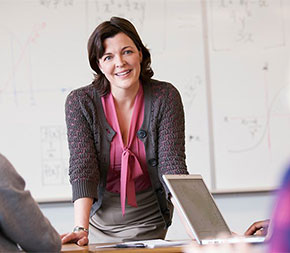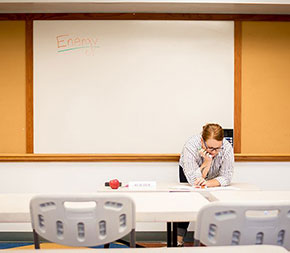How to Thrive in a Special Education Classroom: A Teacher Interview

by All Star Staff
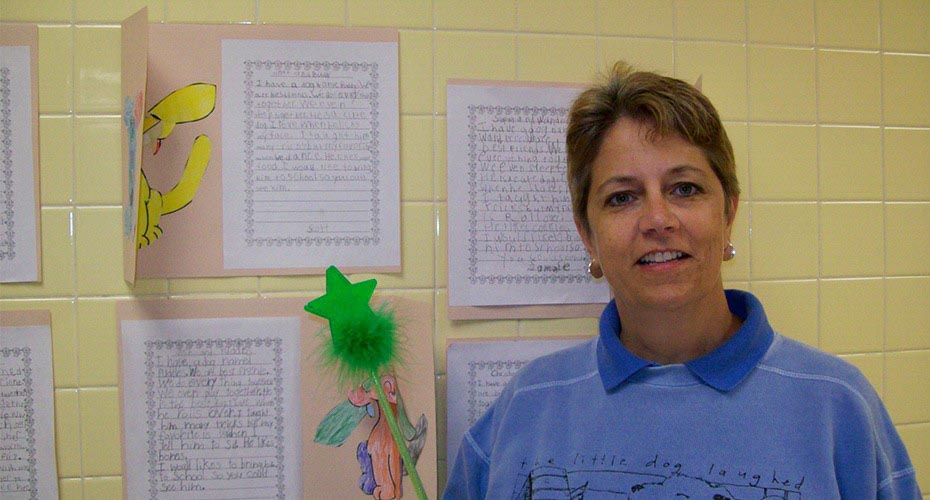
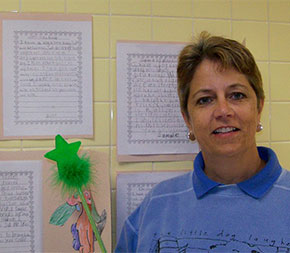
Pam Casey
Special Education Teacher
West Valley Central School
West Valley, NY
Pam Casey, a creative special education teacher, stands at the door to her classroom and shakes hands with the student walking in. Each of her students gets a non-school related question each morning. And each one knows that, tomorrow, their special education teacher will remember his or her answer.
A Very Special (Education) Teacher
Two years ago, during a rhyming activity, her students came up with a nickname for her that would stick far longer than she anticipated. Now, to this day, her students call her “Crazy Casey,” with a giggle, when the mood is light in the classroom.
And the mood is usually light. It can’t help but be with Crazy Casey routinely standing on her desk, sitting on the floor, singing at the top of her lungs or waving a magic wand in front of the class to keep the atmosphere exciting and the students on their toes.
Breaking the Mold
Her students are not your typical 3rd and 4th grade students. As a special education teacher, Pam works with children who live with learning disabilities, emotional disruptions, vision impairment and traumatic brain injuries that affect their ability to function in a regular classroom.

These kids are all too used to the pressures of trying to meet a status quo that wasn’t built for them. So, in a classroom where their teacher, mentor and confidante is routinely more counter-culture than they are, they learn in the depths of their hearts that everyone is acceptable exactly the way they are, no matter how they break the mold.
If at First You Don’t Succeed…
This kind of teaching comes naturally to Pam, although her 15 years of special education teaching experience certainly helped shape her successful methods.
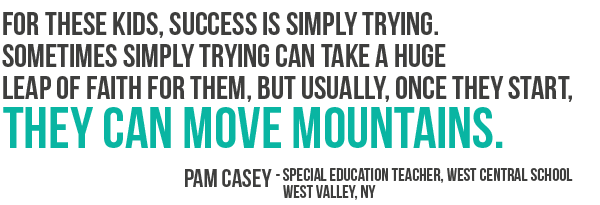
“I love what I do! It would be hard to go back to doing anything else,” she says with a warm smile. “For these kids, success is simply trying. Sometimes simply trying can take a huge leap of faith for them, but usually, once they start, they can move mountains.”
She does set high standards, especially compared to other special education teachers, but her years of witnessing remarkable results and building life-changing confidence has taught her, more than anything, to believe in her students.
Focus on Education
Teaching for more than a dozen years in one of the last remaining schools that serves preschoolers through 12th graders, she has witnessed many of her students matriculate into mainstream classes and even go on to college.
Not long ago, she ran into one of them while he was buying a comforter for his college dorm room. “I was so happy for him,” she said. “He had to work so hard to get where he was now.”
In class, students learn basics like social interactions, self-care and societal norms, but each day also brings classes in English, reading, writing, math and computers. Capable special ed students can join the regular student body in classes as varied as music, library, science and social studies, but spend most of their day in the tight-knit environment of Pam’s classroom.
A Fresh Start Every Day
To be a good special education teacher, Pam says, you have to have patience and not measure everything by the fast-paced standards of the day. “If you don’t have a sense of humor, don’t even bother trying to become a special ed teacher,” she warns. “It helps to be a little wacky. Think outside the box!”
Days with her special students bring plenty of opportunities to laugh and enjoy life the way it is. “Special education teachers benefit from a sort of short term memory loss,” she explains with a gleam in her eye. “Every day is new for the kids. You have to be able to start new too, sometimes in a matter of minutes.”


